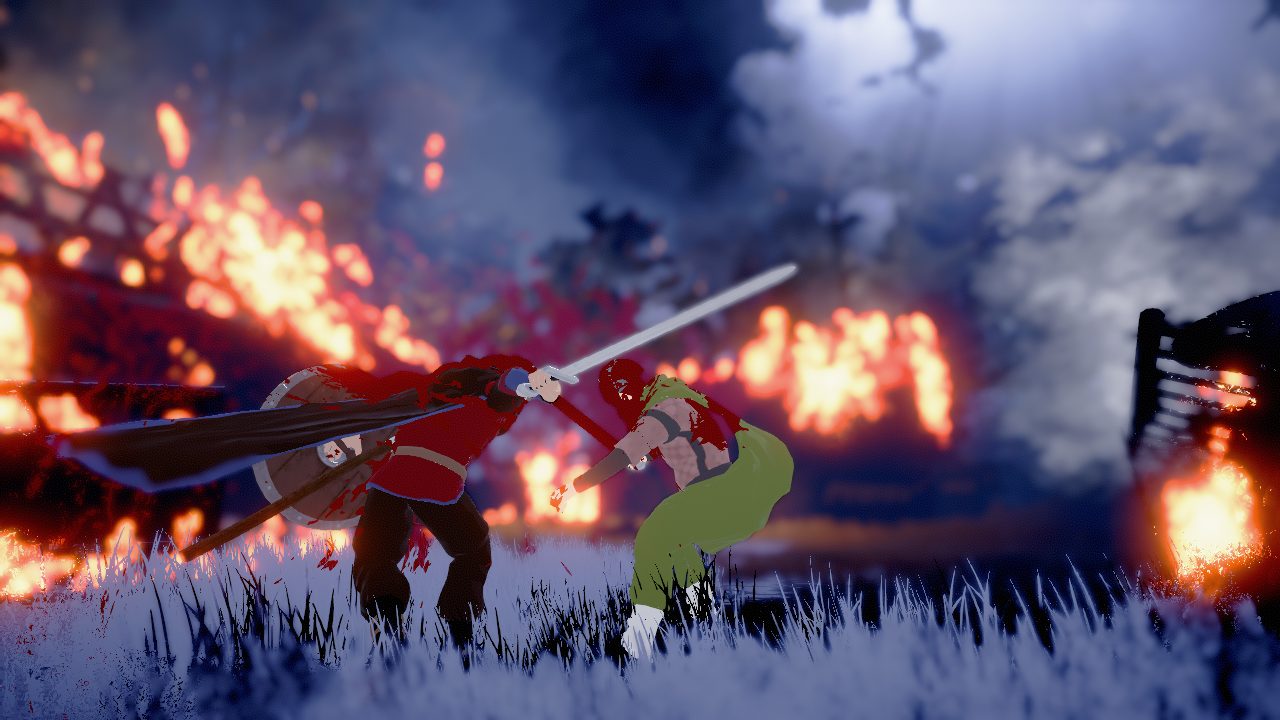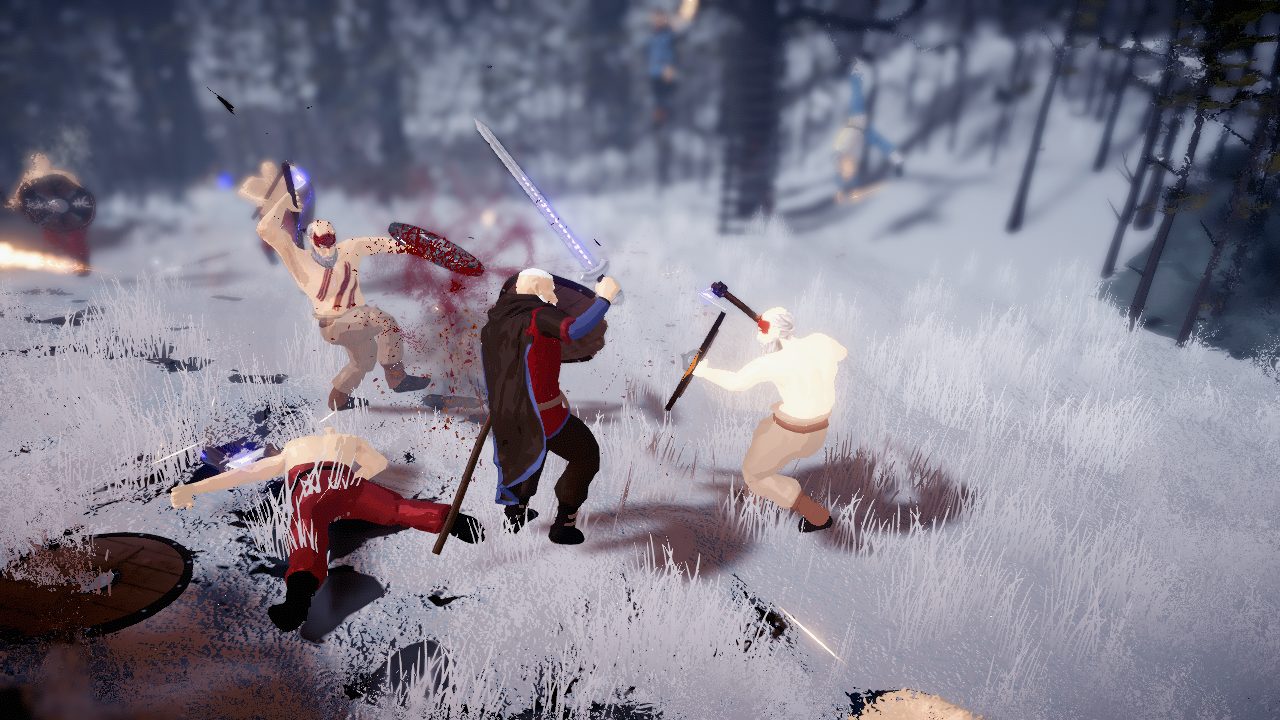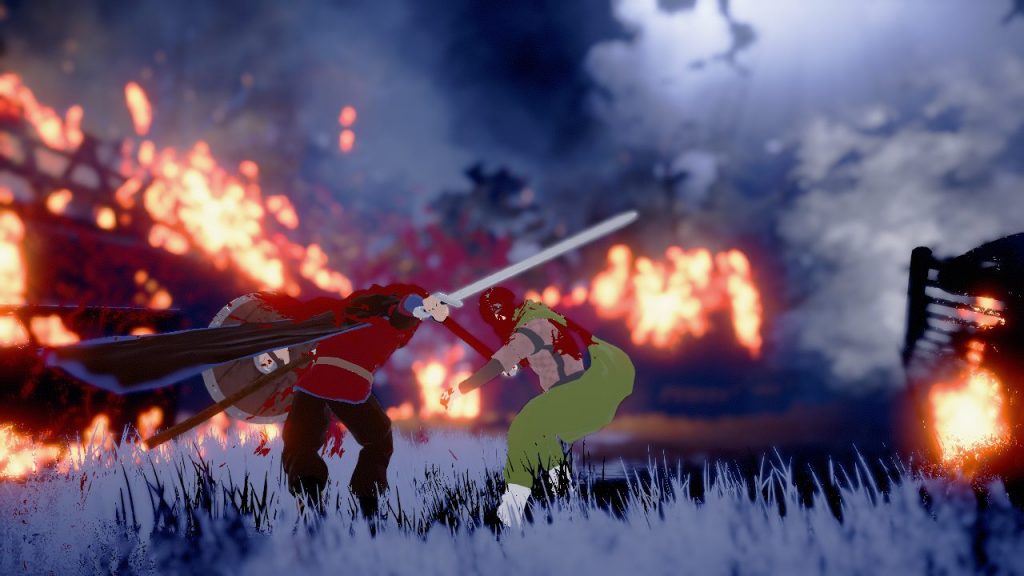Norse mythology is fertile ground for video games. All the drama and violence of poetic Norse sagas translates perfectly to the immediacy and storytelling heft of a great game; even the language of the Norse peoples lends itself well to gaming (“Gotterdammerung”, “Ragnarok”, et cetera). With this in mind, it’s not unreasonable to expect studios to take inspiration from the stories and sagas of the North Germanic people, and indeed we’ve seen this happen many times recently. From God of War to Jotun and Sundered, Norse mythology has inspired some of the best and brightest titles in recent gaming history – a veritable pantheon, if you will.
Into this arena comes Fimbul, described by its creators Zaxis as a “Viking action adventure game”. Zaxis themselves are based in Denmark, giving them something of a pedigree in this area, so one should expect the highest standards in terms of presentation and authenticity. Fimbul follows the adventures of an old berserker who travels to Jotunheim, home of the giants, in order to reclaim an ancient artifact which can save the world of Midgard (that’s the human world to you and me) from imminent destruction. It’s a tried and tested narrative formula – reclaim MacGuffin to rescue humanity – but Norse mythology is, as we’ve established, fertile ground for epic battles and beautiful backdrops, so a simple story is welcome.

Though Fimbul might have a simple narrative, the joy of experiencing said story is in its presentation. Zaxis’ game is presented to the player in beautifully-rendered comic book-style cutscenes, each of which depicts the major events of the story in gorgeous thick brushstrokes and stylised character art. The style might feel slightly at odds with the game’s subject matter – something like The Banner Saga arguably presents its story in a more authentic way – but the comic book scenes do make Fimbul’s story come to life even as its characters and events are threatening the opposite. The narrative here is relatively lifeless and indistinct, with characters coming and going and never quite feeling complete; similarly, the “choices” the game presents are nothing more than gilded cages which have no long-term effect on the game.
That isn’t supposed to sound as negative as it might, though, because Fimbul has two strings to its bow that subvert its less-than-stellar storytelling. There’s the comic book presentation, which is consistently jaw-dropping and holds the interest more than sufficiently, and there’s the combat, which is what Fimbul is largely built around. Zaxis seems pretty proud of the combat system it’s created in Fimbul, and it does have a nicely varied quality that makes it consistently enjoyable to experiment with different combinations of weapons and to anticipate a new enemy with glee rather than annoyance or dread.

Part of the combat’s appeal is Fimbul’s overall presentation, which sits happily between old-school PS2 RPGs like X-Men Legends and more modern fare like Stories: The Path of Destinies. Combat is a largely straightforward hack-and-slash affair which emphasises exploiting enemy weak spots with your spear and wailing on them with your blade. Switching between your weapons is easily done with the D-pad, and it feels great to battle waves of enemies with a wide and varied arsenal, carrying out combos and beating back bad guys by swinging your axe and fluidly transitioning to fighting with your sword.
If there’s a fatal flaw to the combat – and in the end there is – it’s that there isn’t a huge amount of variation in the enemy design. A game like this lives and dies on the breadth of its combat options, especially if the story is lacking, and Fimbul just doesn’t quite have the enemy range to justify its length and repetition. Initially, you’ll be overjoyed to encounter a new wave of enemies as it means once more experiencing the satisfying clunk and weight of the combat, but as you progress through the game you’ll realise that this is the only trick in Fimbul’s combat book, and it’s going to make you repeat the same combat situations ad nauseam.

That’s not to say there isn’t pleasure to be had with Fimbul. For the time it lasts, it’s a perfectly agreeable and often enjoyable hack and slash game with a few tricks up its sleeve and a lovely Norse story told with a beautifully stylised comic book aesthetic. It’s just never really more than that. Unlike its nearest comparison points like God of War and Jotun, Fimbul never quite sizzles; it never feels like it’s jumping out of the screen to tell you a story that absolutely must be told, and it never feels like it’s showing off a combat system that couldn’t possibly have been refined or improved at all. Instead, what you’re left with is absolutely serviceable and often good, but never quite great. It’s definitely worth watching Zaxis as a developer, because Fimbul is an inspired first effort. There’s just quite a lot of room to improve.
This post didnt have a specific author and was published by PS4 Home.

